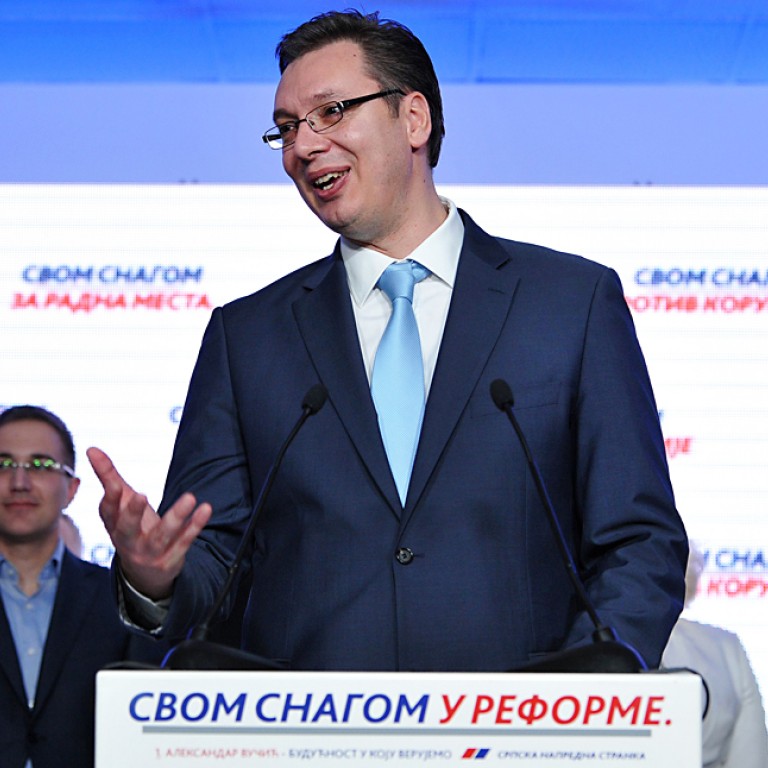
Serbia’s ruling party SNS eyes Europe after landslide victory in snap polls
Serbia's ruling centre-right SNS party was set for a landslide victory in snap polls, cementing its grip on power after pledging tough economic reforms and a route into the European Union.
Serbia's ruling centre-right SNS party was set for a landslide victory in snap polls, cementing its grip on power after pledging tough economic reforms and a route into the European Union.
The Serbian Progressive Party (SNS) won around 50 per cent of Sunday's vote, giving it a majority in the 250-seat parliament, independent electoral monitors CESID said.
If confirmed in final results, it would be the highest score in Serbia's parliamentary elections after the fall of communism in 1990, when late strongman Slobodan Milosevic came to power.
It would also allow the party to form a government with a four-year mandate on its own. The constitutional deadline for the new cabinet to take office is mid-July.
The SNS and its leader Aleksandar Vucic - who is now set to become the next premier - had called early polls after Belgrade won support from Brussels to begin EU membership talks only after a historic accord with the breakaway region of Kosovo last year.
Vucic, 44, an ultra-nationalist hawk turned pro-European, said that the first goal of the future government would be to push ahead with economic reforms and "solve the unemployment problems".
"We are facing difficult reforms... I am convinced that Serbia will pursue its path towards the EU and its fight against corruption," said Vucic, addressing his supporters, after the announcement of electoral victory.
The SNS owes its popularity largely to Vucic's high-profile anti-graft drive that led to the arrest of several tycoons and former ministers.
Serbia, the largest country to emerge after the break-up of Yugoslavia with a population of 7.2 million, has often been seen as a defiant international pariah since playing a central role in the Balkan wars of the 1990s.
But with a fifth of the workforce unemployed and the average monthly salary at just €350 (HK$3,700), Serbia's leading parties now see membership of the 28-member EU as the only hope for the future.
Although Serbia still refuses to recognise Kosovo's 2008 declaration of independence, it forged a compromise deal last year in which it agreed to recognise the authority of the government in Pristina over the territory of Kosovo - an agreement that opened the door to accession talks with Brussels.
The next government will have to focus on reforming antiquated labour laws and cutting down on bureaucracy, analysts say.
Serbia's €8 billion budget is struggling to cope with 1.7 million pensioners and a bloated public sector that employs more than 700,000 people.
The new government will also have to push through a stringent austerity package, including the privatisation of more than 170 state-owned companies, along with subsidy cuts and tax increases.
